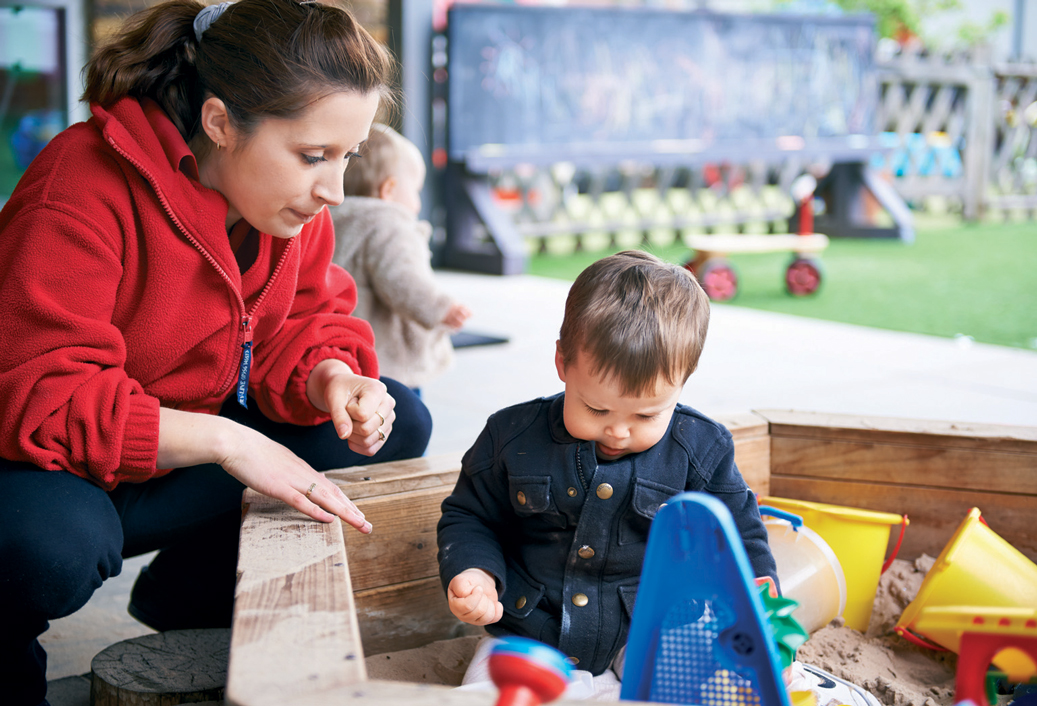8 Conclusion
To become a skilled observer takes time and practice (Gronlund & James, 2013). You will need to figure out your rhythm so that you can incorporate observation and documentation into your regular routine. As an intentional educator, you will want to plan systematic observations so that you can document each child’s unique qualities, interests, developmental strengths and needs, as well as uncover their cultural practices, approaches to learning and play preferences. As you gather evidence, you will want to be as objective as you can be, and you will have to recognize your biases. As you collect your documentation on each child, you will want to organize it and store it safely. Lastly, be sure to observe every child in your class, and be aware that some children may catch your attention more than others for one reason or another. In the next chapter, we will examine several observation tools and techniques that you can use as part of your regular observation routine to ensure high-quality practices.


Terminology used in this Section
Appreciative inquiry Bias Confidentiality Consent Ethics Inclusive Insight Intentional Interpret Interpretation
Making learning visible Objective Observation Observer Person-first language Perspective Reflection Relationships Responsive
Responsive Spontaneous Subjective Wholistic
Resources
Adobe. (2024). Adobe Firefly. https://firefly.adobe.com/
California Department of Education. (2016). The Integrated Nature of Learning. https://www.cde.ca.gov/sp/cd/re/documents/intnatureoflearning2016.pdf
CECE Early Childhood Videos at Eastern CT State U. (2016, Aug 12). Documenting children’s learning [Video]. YouTube. https://www.youtube.com/watch?v=RdOqkukZikE
Cohen, L. (2020). The power of portfolios. https://www.scholastic.com/teachers/articles/teaching-content/power-portfolios/
College of Early Childhood Educators. (2017). Code of ethics and standards of practice. https://www.college-ece.ca/en/Documents/Code_and_Standards_2017.pdf
Fenning, K. & Wylie, S. (2020). Observing young children: Transformative inquiry, pedagogical documentation and reflection (6th ed.). Nelson.
First 5 California. (2015). For the record: Documenting young children’s learning and development [Video]. YouTube. https://www.youtube.com/watch?v=-WAy474XE6s
Haughey, S. & Hill, N. (2017). Provocations: A start-up guide. Fairy Dust Teaching. https://www.mlfmonde.org/wp-content/uploads/2020/12/ProvocationsStart-UpGuide-1.pdf
Hockley, A. (2020). Appreciative Inquiry and observation feedback. https://adhockley.wordpress.com/2020/05/25/appreciative-inquiry-in-observation/
janiceaughey. (2011). Subjective-Objective Exercise. https://www.slideshare.net/janiceaughey/subjective-objective-exercise
JECEI. (n.d.). The importance of documentation. http://www.jecei.org/PDF/10%20The%20Importance%20of%20Documentation%20and%20Project%20Work.pdf
Mehan, S., & Moore, L. (n.d.). Who is watching? Thinking ethically about observing children. Early Childhood Australia. http://www.earlychildhoodaustralia.org.au/our-publications/every-child-magazine/every-child-index/every-child-vol-17-3-2011/watching-thinking-ethically-observing-children-free-article/
Ontario Ministry of Education. (2014). How does learning happen? Ontario’s Pedagogy for the Early Years. https://files.ontario.ca/edu-how-does-learning-happen-en-2021-03-23.pdf
Ontario Ministry of Education. (2015). Capacity building series: Pedagogical documentation revisited. https://www.onted.ca/monographs/capacity-building-series/pedagogical-documentation-revisited
Paterson, G. & Elam, E. (2022). Observation and assessment in early childhood education. NSCC. https://pressbooks.nscc.ca/ece-observation/
Posada, M. M. (2004) Ethical Issues in Assessments with Infants and Children. Graduate Student Journal of Psychology, 6, 42-47. https://www.tc.columbia.edu/publications/gsjp/gsjp-volumes-archive/gsjp-volume-6-2004/755_Assessment-finalversion.pdf
Sage Publications (n.d.). Observation and Assessment. 86-110. https://www.sagepub.com/sites/default/files/upm-binaries/9656_022816Ch5.pdf
Seitz, H. (2008). The power of documentation in the early childhood classroom. Young Children, 88-93. https://www.naeyc.org/sites/default/files/globally-shared/downloads/PDFs/resources/pubs/seitz.pdf
The University of British Columbia. (2021). Indigenous peoples: Language guidelines. https://assets.brand.ubc.ca/downloads/ubc_indigenous_peoples_language_guide.pdf

